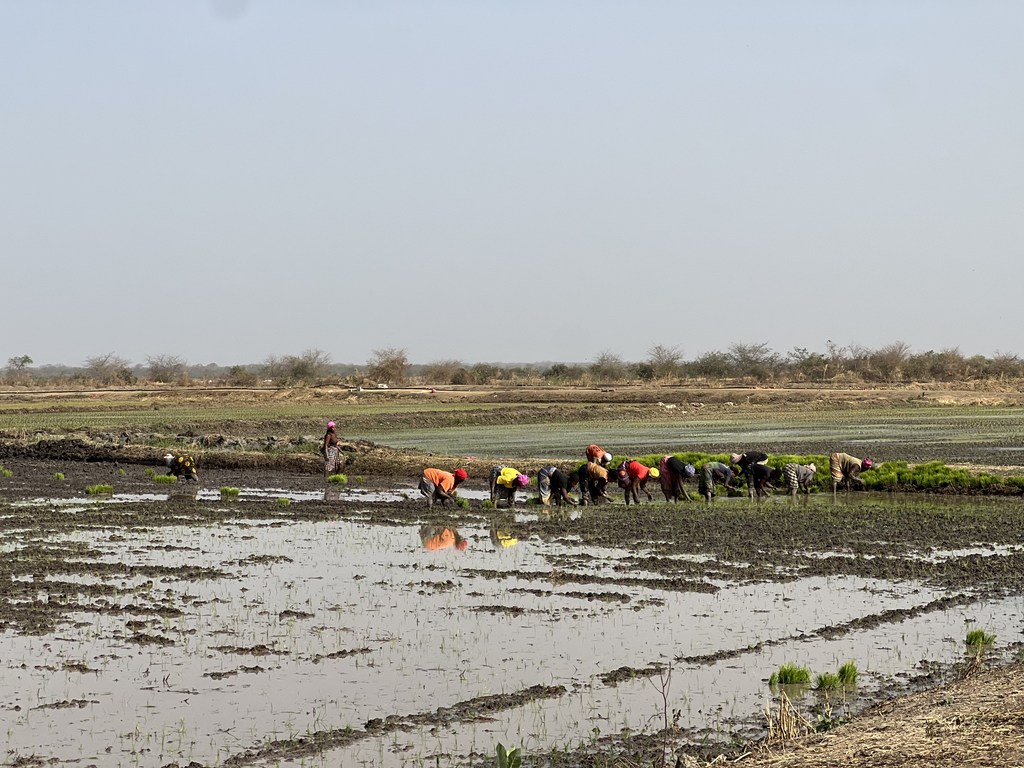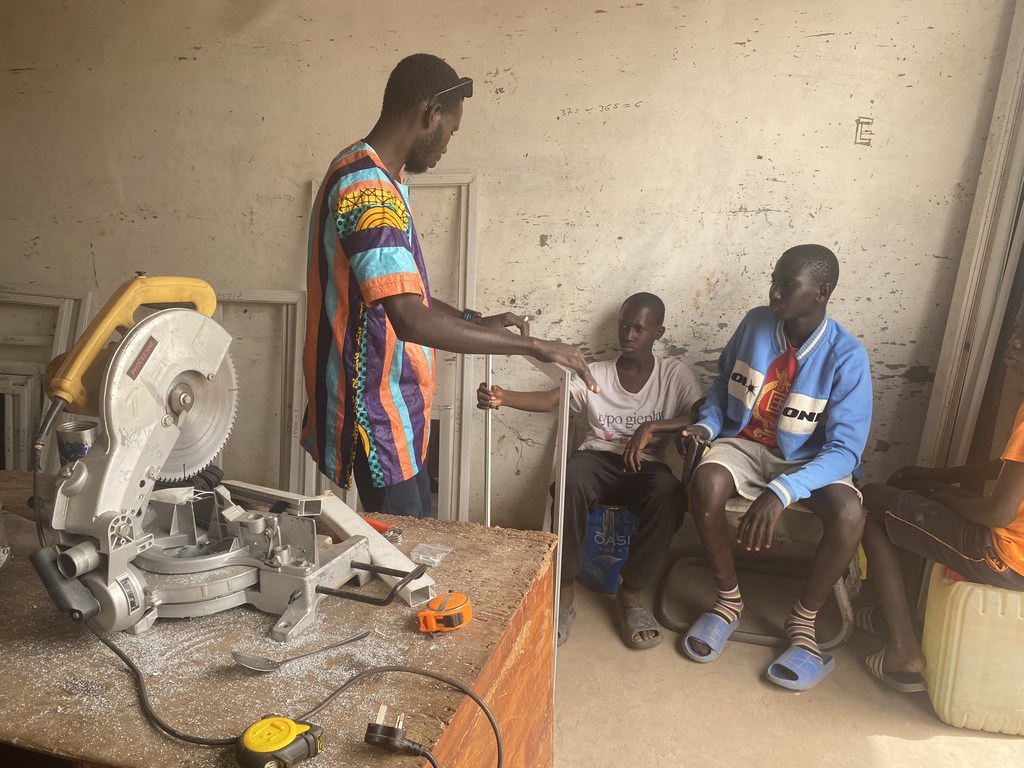In terms of the economy, where tourism plays an important role, UN agencies have focused on providing training for young people and vulnerable groups such as returning migrants, and giving them seed capital to start their own businesses. Often, returning migrants feel like a burden on their families, but with our help many of them have been able to thrive.

Women working in a rice field, The Gambia
Truth and reconciliation
Brothers Alhadje and Abdoulie Faal’s fruit and vegetable business in Kanuma, The Gambia, is supported by the UN Capital Development Fund Unfortunately, this is a country where there is significant violence against women, including female genital mutilation. Sometimes women don’t want to talk about the violence they suffer, so we have set up hotlines they can call, and built centres where they can go to be treated, and receive support. UN News/ Conor Lennon UN News/ Conor Lennon When my mandate began, in 2018, it was not long after the end of the dictatorship [The two-decade rule of Yahya Jammeh]. The new Government was already embracing several reforms simultaneously, reviewing the constitution, the judiciary, and the security sector, and the UN had allocated funds for peacebuilding.

An important development was the establishment of the Truth, Reconciliation, and Reparations Commission (TRRC), with the backing of the UN and other partners.
Amadou Jobe, a returning migrant, trains apprentices in a workshop in Banjul, The Gambia.
Changing lives for the better
Our agencies provided food and shelter for those displaced by the flooding, and providing clean drinking water, but we are also helping the population to adapt, and become better prepared before the next floods arrive. It’s crucial to have a government that shows leadership. If not, you can outline a vision for where you think the country should go, but you won’t get anywhere. We have supported the Government’s creation of a Department for Strategic Planning and Delivery, within the office of the President. We have trained the staff, and shown them best practice in other countries. I think that this country is moving in the right direction. We have many more partners now, and the donor community is growing. After a five-year period, the transition is nearly complete, and we have helped the Government to lay the foundations for most of the reforms, policies, and strategies. People were enthusiastic to embark on the Commission, which has been very important for the country. Expectations were high from the victims, from the population, but also from different partners. It was important that it should be a Gambian-driven process, to avoid any influence from outsiders. We helped to set it up and provided the necessary expertise to run it. Coming out of a twenty-year dictatorship, where human rights were abused, we supported the creation of a National Human Rights Commission, which is fully functional and, in many ways, a centrally important institution, which will monitor the implementation of the TRRC.